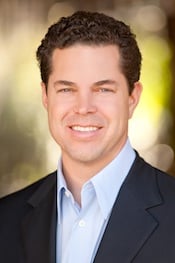
The passage of Proposition B pension reform initiative by a healthy majority of San Diego voters sent a clear message that taxpayers have had it with runaway costs involved in the care and feeding of public employees, especially those who have retired.
In a time when most of the 10,000 Americans who turn 65 every day cannot afford to retire – when one out of 10 workers can’t find suitable work and when vital city services have been stripped to the bone – two out of three voters approved a citizens’ initiative that would eventually cut the soaring pension costs.
Having withstood its first legal challenge, Prop. B will switch new city employees, except police officers, from the lavish defined benefit pension enjoyed by current employees to a 401 (k) style defined contribution program and impose a five-year pay freeze on the pensionable pay of current employees.
Even if the initiative survives, the question remains whether the measure will bring enough fiscal relief in the short and intermediate term. It does prohibit “pension spiking,” a widespread practice that permits specialty pay and allowances, bonuses and other extra compensation to be added to an employee’s base salary when calculating retirement pay. Prop B also caps police officer pensions to no more than 80 percent of the retiree’s highest compensation for 36 consecutive months. And, the initiative requires city employees to finally pay a fair share of the costs of the benefits they enjoy.
What the initiative doesn’t deal with are the other escalating costs of retirement benefits for existing city workers, many of whom will continue to accrue bloated benefits under the existing pension programs for years to come.
For example, there’s the practice of “reciprocity” in which public employees can take their pension benefits from one public agency to another and retire under their successor employer’s pension program. It’s not uncommon for City Hall executives, particularly those holding political posts, to have previously worked for the county, state, and other government agencies before moving over to the city. The last agency to hire the seasoned public employee, in this case, the City of San Diego, must honor the prior years of service for retirement eligibility without having benefitted from the employee’s services during those earlier years.
But what’s totally unacceptable are the cases in which employees who work for a number of years are able to draw lifetime pension benefits near to, equal to, or even higher than what their actual salary was when they retired, in addition to continuing medical benefits. It’s difficult to argue that taxpayers benefit by paying these ever-increasing costs.
In fact, taxpayers and the communities they live in suffer as a result. For years, cities, counties and other government agencies have warned public employee unions and taxpayers that the cities cannot sustain current retirement benefit levels and still provide services to the public. Unfortunately it‘s taken a record recession that has devastated tax revenue streams to finally get the public’s attention.
Four years ago, Vallejo became the largest city in California at the time to file for bankruptcy when it was unable to persuade public unions to allow rollbacks in salaries and benefits for city workers.
Two months ago, Stockton, with just under 300,000 residents, won the distinction as the largest city in the nation to file for bankruptcy protection after passing a budget-in-bankruptcy that contained more than $90 million in spending cuts, including a 25 percent reduction of its police force and a substantial number of firefighters and other key employees.
More recently, San Bernardino, population 209,000, avoided a total shut down by filing for bankruptcy protection, with less than $150,000 in its coffers and a $46 million deficit.
Given a continuing fickle economy and unions vowing to resist real pension reform, the question now is whether Prop B will provide enough financial relief to keep San Diego from displacing Stockton as the largest municipality to go under? It’s a title we must avoid.
Jason Hughes is founder of Hughes Marino, an award-winning commercial real estate company with offices across the nation. A pioneer in the field of tenant representation, Jason has exclusively represented tenants and buyers for more than 30 years. Contact Jason at 1-844-662-6635 or jason@hughesmarino.com to learn more.









